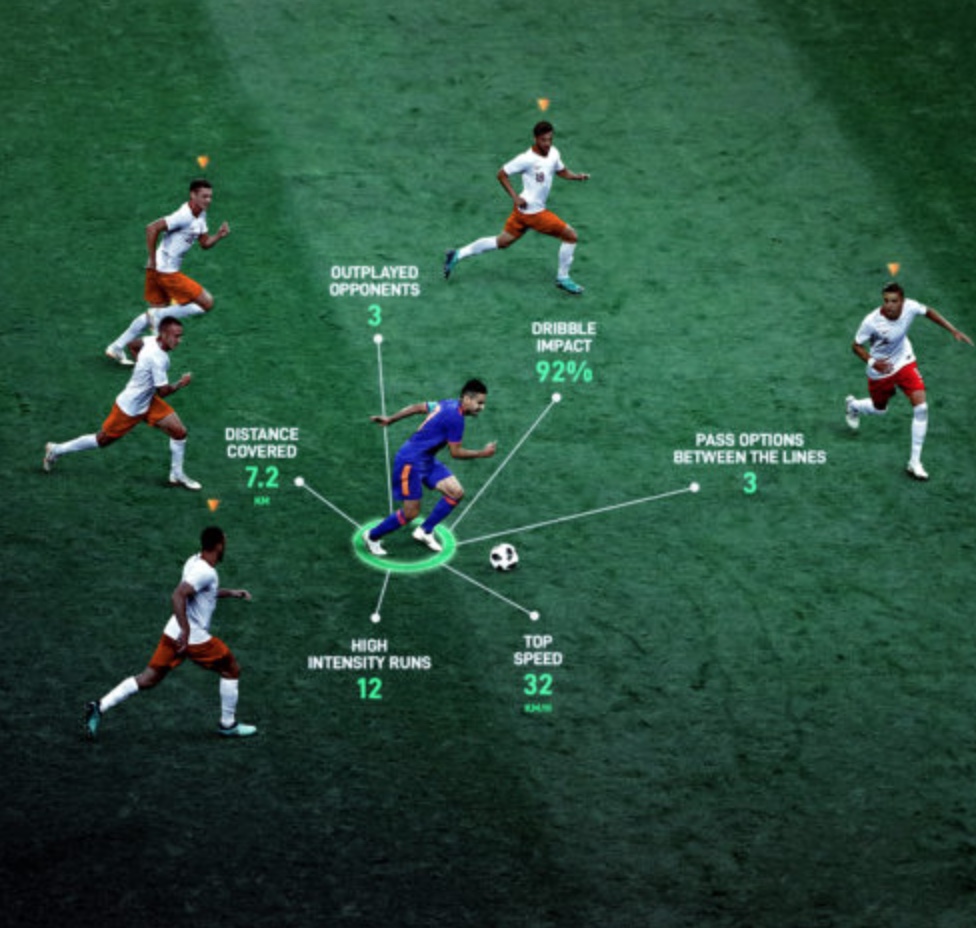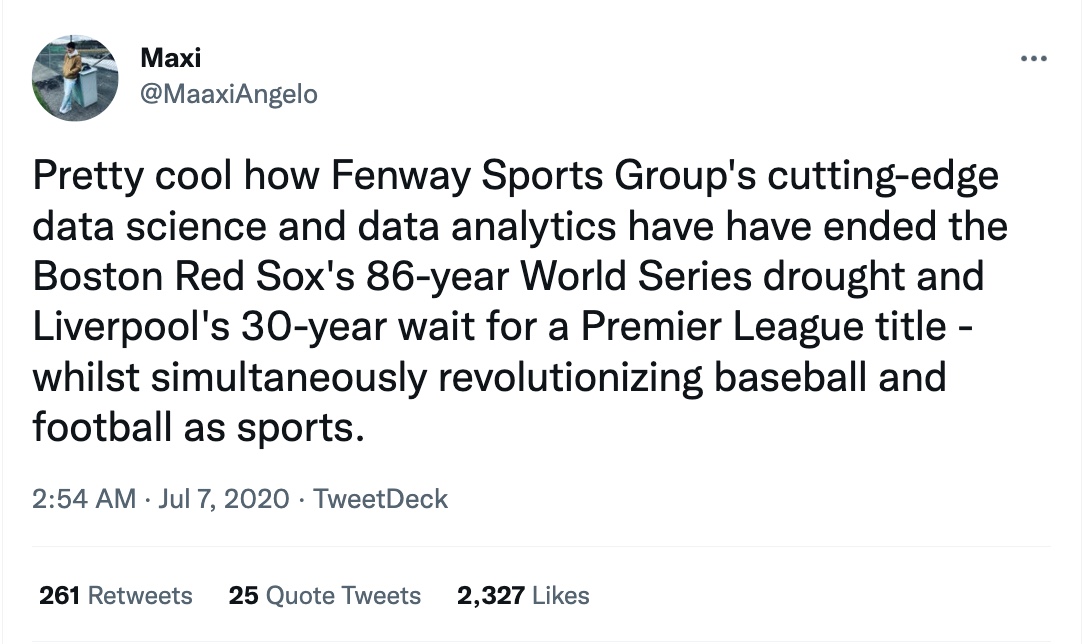Technology is taking over all aspects of our lives, including football.
Goal-line technology is now commonplace and VAR is becoming more and more prominent as seasons go by.
Analytics in football too has been growing in importance.
In-game data analytics is being used to track player performance and fitness data.
The dugouts have real-time data about every player, the speeds at which they run, the number of passes, player’s focus; you name it, they have a statistic for it.

Additionally, after the game, the manager and squad will use the data analysis to adjust their strategies, make corrections, and enhance their performance going forward.
For a while now, Liverpool has been compiling huge volumes of data and analyzing the numbers to ascertain not only which players are best suited to play in a particular style of football during matches, but also the tactical positions they should occupy during those matches.
To ensure this operation runs smoothly and error-free, a large crew of statisticians and experts crunch the numbers in the background.

However, Liverpool is not the only team that gains success with the help of data – almost every team in the world uses it.
One of these is Real Madrid. The Spanish team is arguably the greatest club in the history of football.
One of the wealthiest clubs in the world, the footballing giant is the most successful team in Europe, having won a record 14 European Cups and 35 titles in the La Liga.
The club has revolutionized club football by streamlining its operations with the use of digital and data-driven technology.

During practice sessions, each Real Madrid player has a GPS gadget built into his training gear. The gadget keeps track of the player’s acceleration, running distance, speed, and heart rate.
These statistics make it easier to define and manage a player’s training load, which lowers the risk of injury.
Nevertheless, Real Madrid manager Carlo Ancelotti is not exactly a die-hard fan of these.
In a Mallorca pre-match presser, Ancelotti, talking about player rotation, said, “We have a whole load of data and we have to consider the number of minutes played. These are things that simply confirm what I see with my own eyes.”

“If I see a player is fatigued and the data says the same thing, that player will get a rest. If I see a player who looks fresh, even if the data says he’s tired, he’s going to play”.
The coach was talking about rotation and substitutions and the role data plays in Carlo’s decisions.
Basically, the only time Carlo listens to the data is when the data agrees with him. Makes the data quite redundant, doesn’t it?
As much as this statistic is confusing, Ancelotti is not one to be doubted this easily.

He is the only manager to have won all the big five leagues in Europe, and also has 4 champions leagues to his name. He was also named the best coach in the world twice by the IFFHS committee.
While the Moneyball approach may work for some, Ancelotti prefers to rely on instinct more than numbers.
We’re not sure how exactly Ancelotti’s mind works, but it’s clearly working at a higher level than we can understand. Even data can’t keep up with Don Carlo.



